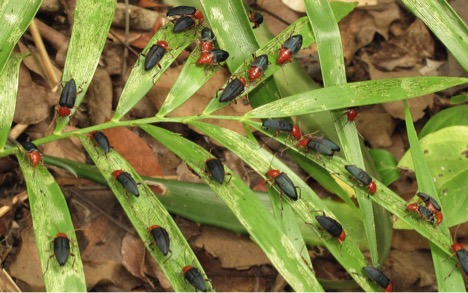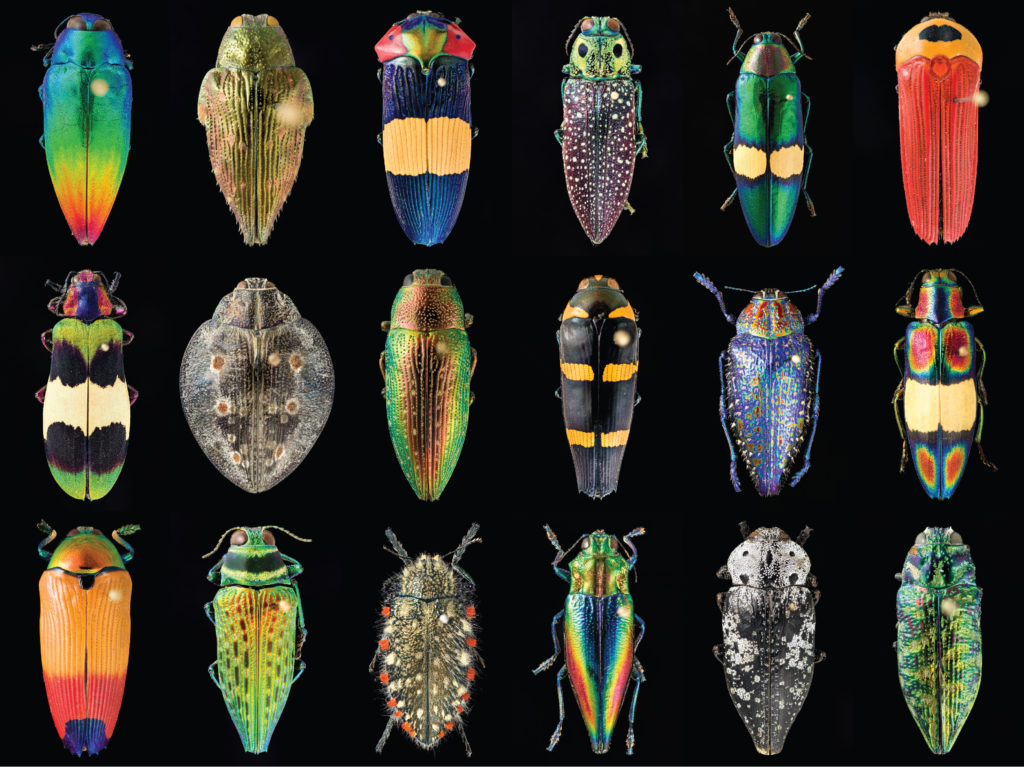Tuesday, November 10th
Virtual Zoom Meeting
07:30 PM EST
Join Zoom Meeting Here
Searching for the habits of New World Beetles in the family Orsodacnidae: Observations from points in Central and South America
Donald Windsor
Biologist Emeritus
Smithsonian Tropical Research Institute, Panama

Early systematic work on beetles in the family Orsodacnidae led quickly to inferences on ancient origins and the notion of “living fossil” insects. Recent observations of beetles in the two Neotropical genera, Aulacoscelis and Janbechynea, in Panama, Mexico and Bolivia establish a consistent pattern of association between adults of all taxa and their cycad host plants, a pattern apparently absent in the Old World genus, Orsodacne. Yet one is left wondering where are the immature stages and what are the resources they utilize. A more complete natural history of this group is needed before a possible 150 million year history is brought to an end. Recent observations in Bolivia and elsewhere may be cracking this mystery ever so slightly.
Don Windsor grew up deep in the woods of southern Indiana. He received a BS in Wildlife Conservation at Purdue University (1966), served as a Peace Corps volunteer in the Kalahari Desert of Botswana (1966-67), became infected with Tropical exhuberance on an OTS course in Costa Rica (1970), received a PhD in Ecology and Evolutionary Biology from Cornell University (1972), studied insect herbivory with Dr Daniel Janzen on an NSF fellowship in Guanacaste Province Costa Rica (1972-73), and continued those studies on a Smithsonian Post Doctoral Fellowship (1973-74). Starting in 1975 as a research biologist at the Smithsonian Tropical Research Institute in the Republic of Panama, he was drawn toward documenting cases of subsocial behavior in Neotropical leaf beetles, and more broadly, toward determining feeding associations between Cassidinae and their host plants. As an emeritus researcher he joined Dr. Keith Clay (Tulane Univ.) to examine the role that epibiotic fungi (Clavicipitaceae) may have on leaf beetle diets, and with Hassan Salem (Max Planck, Mutualisms Research Group) to clarify the role bacterial foregut symbionts (Stammera) may have on host plant selection and cell wall digestion. The association between Orsodacnidae beetles and cycads, first in Panama and later in South America, he has been interested in for several decades, initially stimulated by visits and field trips on the Isthmus with the late Dr. Pierre Jolivet.
In compliance with the COVID-19 social distancing guidelines, we are temporarily suspending all physical meetings and pre-talk dinner until further notice.
CEC meetings are normally held the second Tuesday of the month from October through May. The evening schedule typically includes an informal dinner (5:45 to 7:15 PM) followed by our formal meeting (7:30 – 9:00 PM). The latter begins with club business and is followed by a 60-minute entomology related presentation. Membership is open to amateur and professional entomologists.



